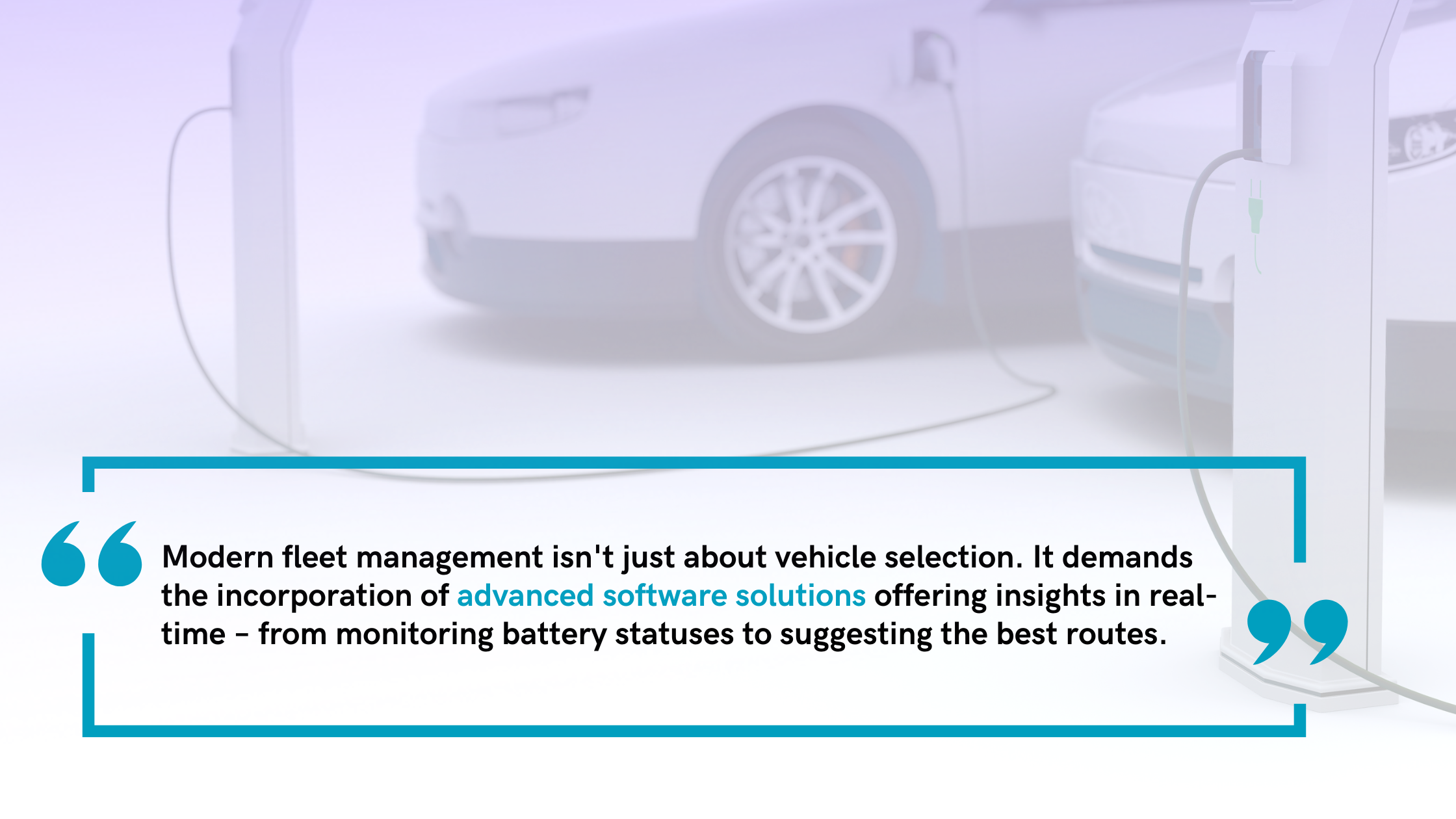How fleet management is evolving with the rise of EVs
Aug 17, 2023 · 5 min read · blog
The unmistakable hum of an electric engine is becoming an ever-present sound on our roads. The widespread adoption of electric cars means that those in charge of managing vehicle fleets must adapt to new realities. With the emergence of EVs, there come both unique challenges and promising opportunities. Let's dive into this intriguing evolution.

A brief overview

The gentle purr of electric motors is now a common feature on our highways and city streets. This has prompted fleet managers to adjust to the changing landscape, grappling with both the new possibilities and hurdles this presents. With an emphasis on green innovations and unique charging methods, the art and science of fleet management are undergoing a metamorphosis.

Sustainability: more than just a trend

No longer just a trendy buzzword, sustainability is becoming a tangible action point. Transitioning to EVs offers organizations a concrete method to reduce their environmental impact. It's a powerful testament to an organization's commitment to both its stakeholders and the planet. A growing number of companies are taking ambitious strides towards carbon neutrality, with electrification of their fleets serving as a cornerstone of these efforts.

Electrification: beyond the passenger vehicle

The realm of electric vehicles isn't restricted to passenger cars. The list now includes buses, heavy-duty trucks, delivery vehicles, and other commercial modes of transport. This broadening spectrum affords fleet managers a vast array of choices, allowing for adaptability in conjunction with ecological responsibility. As the market welcomes an array of models and specifications, companies are equipped to tailor their fleets, addressing specific requirements while upholding environmental commitments.

From refueling to recharging: a paradigm shift

Moving from conventional fuel stations to electric charging hubs signifies one of the most profound shifts in fleet management. While most are accustomed to the traditional fueling setups, the world of EV charging is still uncharted territory for many. This segment delves into the nuances of charging hubs, on-premises solutions, and the critical role of methodical route design. With advancements like high-speed charging and enhanced battery longevity, addressing these challenges becomes more straightforward, but also involves thoughtful planning and careful organization of an effective EV charging infrastructure.

The digital revolution in fleet management

Modern fleet management isn't just about vehicle selection. It demands the incorporation of advanced software solutions offering insights in real-time – from monitoring battery statuses to suggesting the best routes. As the industry pivots, these technological tools transition from being mere assets to absolute essentials. Monitoring vehicle conditions, forecasting servicing intervals, and guaranteeing uninterrupted functionality is crucial. Digital interfaces and cloud-driven solutions empower fleet managers with a global perspective, ensuring each vehicle operates at its best.



Economic aspects: present costs and future savings

Undoubtedly, transitioning to an EV-dominant fleet demands financial commitment. But it's important to adopt a holistic view. While upfront expenses can be considerable, the extended financial outlook hints at lower upkeep costs, savings on fuel, and possible tax incentives. Moreover, with rising EV demand, bulk production and purchase could significantly curtail both vehicle and infrastructure expenses.

The broad environmental impact of EVs

The green merits of EVs aren't limited to just slashing carbon emissions. The shift to electric also translates to quieter cities and a reduction in auditory pollution. A mass move towards electric fleets could lead to a notable drop in global oil consumption, reshaping global energy narratives. Furthermore, cleaner urban air could result in a marked drop in respiratory ailments, signifying a notable benefit to public well-being.

Leveraging governmental initiatives

Around the world, governments are rallying behind the EV movement. From tax breaks to grants for infrastructure, an array of support mechanisms are in place. For those in fleet management, capitalizing on these aids can alleviate initial investment pressures, facilitating a more cost-efficient transition. Being informed about both local and federal incentives, fused with judicious planning, can magnify the advantages of moving to electric vehicle fleets.

On the road toward sustainable fleets

The rise of EVs isn't a fleeting moment; it's carving out the transportation future. With this pivotal shift, the entire landscape of fleet management is undergoing a profound transformation. As we navigate this transition, the intersection of technological breakthroughs and environmental responsibility is bound to dictate a brighter, greener future in the domain of fleet management.

Electrifying a fleet has many challenges, but Volteum is here to provide the world’s leading software solutions to overcome them easily and cost-effectively - talk to our experts and start your electrification journey now! ➡️ https://bit.ly/volteumdemo